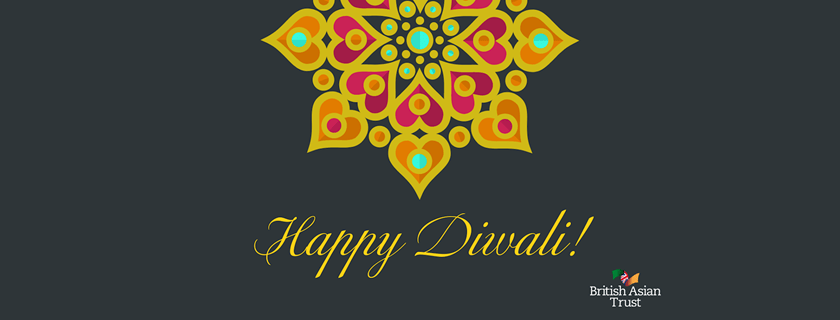The lightness of giving in dark times
This year, our world has changed profoundly. Millions have experienced the darkness of severe ill health, the loss of loved ones, livelihoods, security and hope. Countries across the world continue to move in and out of different states of lockdown and communities everywhere face an uncertain future. Distance from others, isolation and loneliness, hold up a mirror in this ‘new normal’ way of life.
At times, bad news can overwhelm us and side-line the heartening stories of human acts of kindness that lighten our lives, lift us up and restore hope. During the first UK lockdown, the British Asian community contributed some humbling examples of outreach. We were delighted to recognise some of these ‘British Asian Heroes’ for their service and acts of kindness on the front line, through voluntary work or their businesses. I am sure we can all cite many similar stories of generosity from our communities and beyond, that have supported people and restored hope through dark times.
Diwali – the festival of lights - symbolises the spiritual ‘victory of light over darkness, good over evil and knowledge over ignorance’ and is a time of rejoicing and renewal. Hindus, Jains, Sikhs, and Newar Buddhists celebrate this most popular of festivals diversely across the world through different historical, religious and cultural events, each signifying the victory of light over darkness, and the importance of knowledge and self-improvement over ignorance. It is a time of generosity, with communities coming together to celebrate as well as the giving and receiving of gifts.
Diwali will of course be very different this year with many people unable to mix beyond their own households. Temples will not witness the throng of thousands congregating to worship; many cities will replace public events with online celebrations and urban lights will be switched on remotely.
Perhaps this more interior quality, offers us a quieter opportunity to reflect on our blessings. To remember when we light our lamps this Diwali; those communities in South Asia where the impact of the pandemic has resulted in a crisis and level of need on a vast scale. Across the region, tens of millions of families are facing life or death situations because of COVID-19 and some societies are facing decades of a bleak struggle to restore what were already fragile infrastructures and economies. So many people are just seeking to survive and rebuild their lives from nothing.
Yet there are stories of hope and renewal such as the story of 21-year-old Sushma in India, whose spirits were raised and strengthened when help came at the right time through British Asian Trust partner Jan Sahas.
When Jan Sahas field coordinator Radha first spoke to Sushma, she was distraught and deeply concerned about her three children and the lack of support available to them.
“What will I do? How can I take care of my three daughters? How will I feed them, clothe them and send them to school? Where will I go? What work will I find in this time where every little thing costs money? We are already in debt as well.”
Sushma Kushwah and her husband, both from a village in Bandha district in Uttar Pradesh, had been daily wagers, working to support themselves and their three children. They were already living in poverty in a small kachcha home (the entire family lived in one room) which flooded during the rains. Once the lockdown was announced, they had no source of income or work.
Overwhelmed by the financial burden, her husband died by suicide in May 2020. A month after her husband’s death, Sushma attempted to kill herself and her children by consuming poison. They were rushed to the hospital by neighbours.
When Radha heard about Sushma, she immediately went to the hospital. Sushma had already been discharged, so Radha went to the family’s home and spoke to Sushma, assuring her of help. Through regular contact, Radha worked towards strengthening Sushma’s spirit. Jan Sahas provided her support with emergency dry rations and monetary relief of Rs 5000 for her medicines, and further supplies for her family. Apart from this, the moral support and presence of another caregiver raised Sushma’s spirits.
Radha and her team are continuing to support Sushma with further supplies, counselling sessions and to create a sustainable plan for the future.
Perhaps this year more than ever, Diwali can symbolise a beacon of light in a dark landscape and act as a reminder that with help, lives like Sushma’s can be turned around and despair can be replaced by hope. This Diwali, please light a lamp of hope for communities who are facing the darkness of despair. If you would like to give to the British Asian Trust to help families like Sushma’s restart their lives, please do so here.
Hitan Mehta, Executive Director of the British Asian Trust
November 2020

